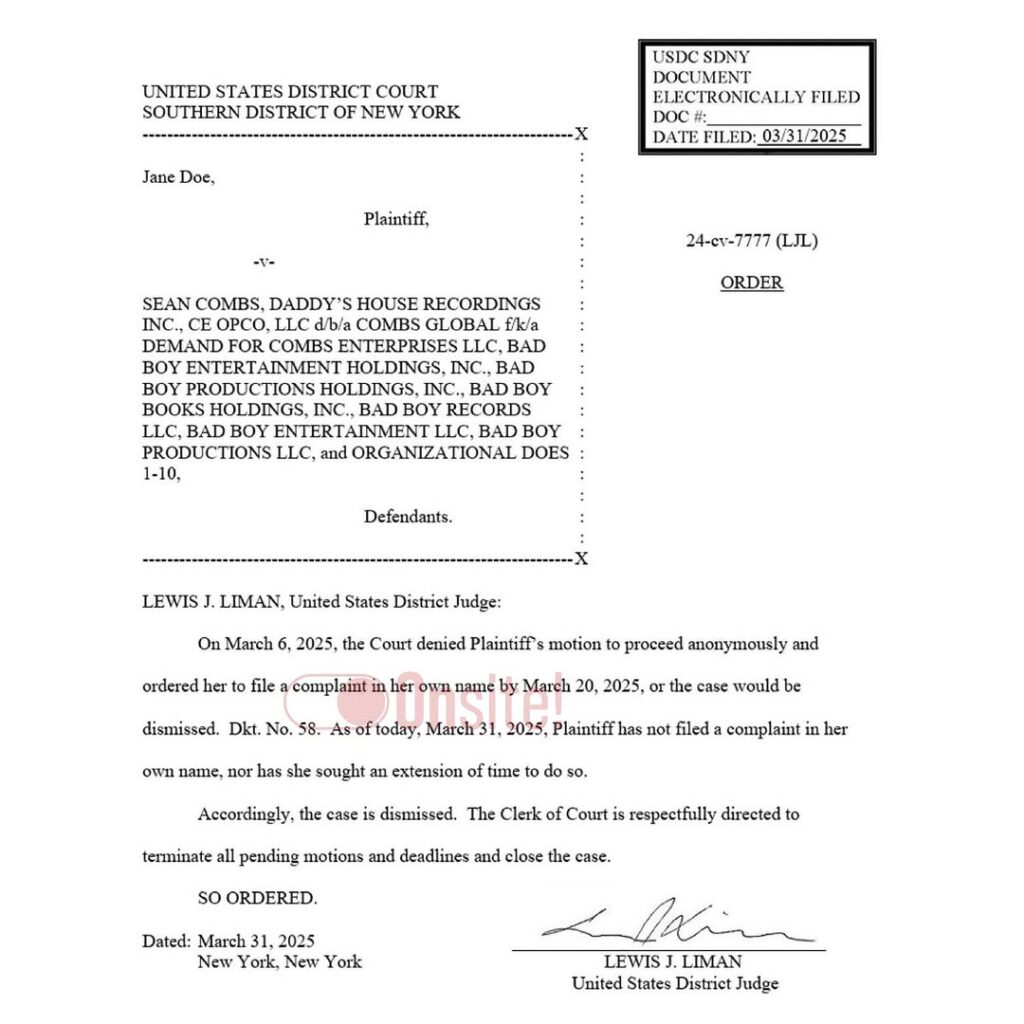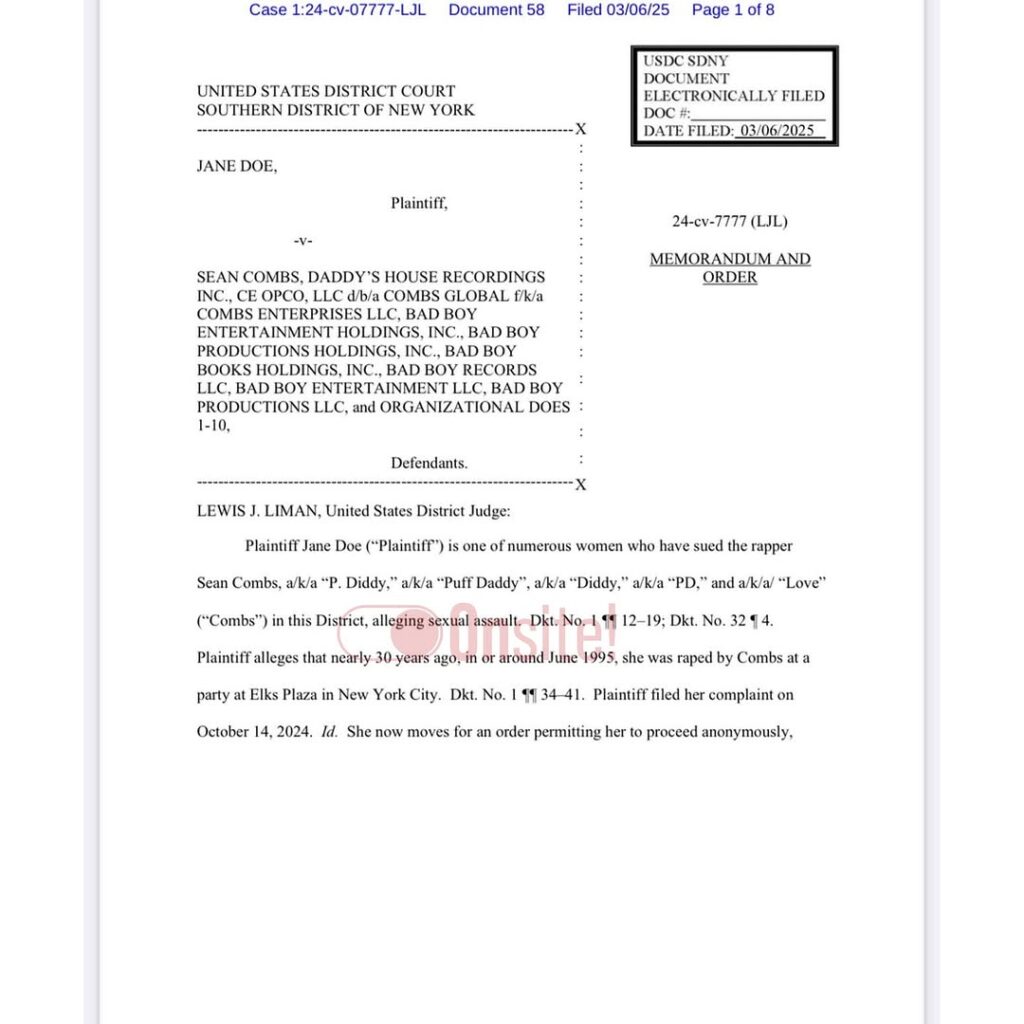In a recent legal development, U.S. District Judge Lewis J. Liman dismissed a sexual assault lawsuit against music mogul Sean “Diddy” Combs.
The plaintiff, identified as Jane Doe, alleged that Combs raped her at a party in 1995 at Elks Plaza in New York City.
Initially filing the complaint under a pseudonym, the court denied her request to proceed anonymously, citing federal rules that mandate the public naming of parties for transparency and fairness.

The court set a deadline of March 20, 2025, for her to refile using her legal name; however, as of March 31, she had not done so, leading to the case’s dismissal.
This marks the third instance where a sexual assault lawsuit against Combs has been dismissed due to the plaintiff’s refusal to reveal their identity.

In a prior case, a then-39-year-old man accused Combs of sexually assaulting him at a 2022 house party in New York. The lawsuit was dismissed when the plaintiff declined to disclose his identity, adhering to similar judicial standards regarding anonymity.
In another case, a woman identified as Jane Doe filed a lawsuit in October 2024, alleging that Combs attempted to sexually assault her at a party in 1995. The court required her to refile the complaint using her real name by March 20, 2025. She neither refiled nor sought an extension, resulting in the dismissal of her case.
Despite these dismissals, Combs continues to face multiple legal challenges. Recently, he was indicted on five federal criminal counts, including racketeering and sex trafficking.
Prosecutors allege that Combs used his business ventures, such as Bad Boy Entertainment, to facilitate the sexual abuse of women over a 20-year period. Combs has pleaded not guilty to these charges, with a trial set to commence on May 5 in Manhattan federal court.
The recurring theme of plaintiffs seeking anonymity in sexual assault cases against Combs underscores the complex balance courts must maintain between a plaintiff’s privacy and the defendant’s right to a fair trial.
Legal experts note that while the desire for anonymity is understandable, especially in sensitive cases, the judiciary often upholds the principle of transparency to ensure fairness in legal proceedings.

